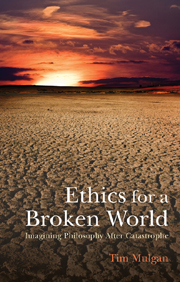Book contents
Lecture 17 - Democracy and the future
from Part IV - Democracy
Summary
In affluent democracy, only present people could vote. But present decisions always impact (often very seriously) on future people. Not everyone affected by affluent “democratic” decisions was able to vote. But was that really democratic? Did affluent democracies treat future people justly?
Our final lecture brings an intergenerational perspective to our assessment of affluent democracy. We first ask whether the standard affluent arguments for democracy make sense in an affluent world with a broken future. We then ask whether affluent philosophers had the conceptual resources to imagine a truly democratic intergenerational community.
Does democracy produce good results across generations?
Affluent utilitarians argued that democracy promotes present well-being. But does it also promote the well-being of future people?
We begin with the theoretical arguments of pre-affluent utilitarians. Bentham argued that democracy promotes well-being by giving individuals control over decisions that affluent them. But no affluent democracy ever offered that control to future people. Democracy has all the defects of despotism, as present people are free to arbitrarily impose their will on future people. On utilitarian grounds, we should expect to find that affluent democracy did not benefit future people.
Affluent philosophers recognized this problem. They offered other theoretical arguments why, on the contrary, we should expect democracy to benefit future people.
- Type
- Chapter
- Information
- Ethics for a Broken WorldImagining Philosophy after Catastrophe, pp. 211 - 220Publisher: Acumen PublishingPrint publication year: 2011



